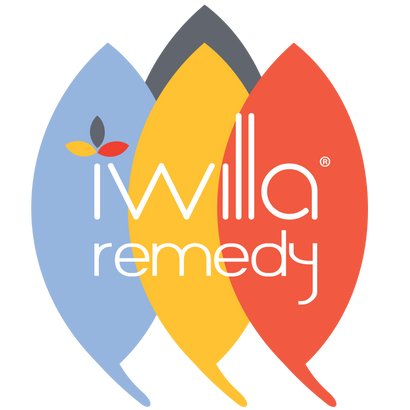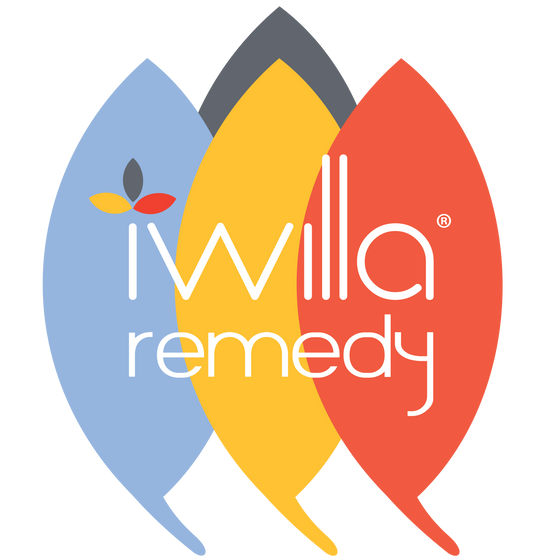8 TO DO’s When Working With Plants
August 03, 2017

There is definitely a resurgence of interest in all things natural. Many people in my community are increasingly turning to herbs before pharmaceuticals because they want to avoid the damaging effects of drugs. Most importantly people are sick and tired of being sick and tired and want to improve their health in lasting and holistic ways.
As an herbalist I love the enthusiasm and curiosity people have about natural remedies. I get a lot of questions about what herbs to take for different conditions. Just today I was asked what topical remedy could be used for fungal infections on a child. I geek out when someone has a problem they want to address naturally.
I also have the tendency to throw a lot of information at the person about my herbal recommendation because I want them to be set up for success. There is a learning curve with making and using plant medicine. I often hear the phrases “it didn’t work” or “I need something stronger.” As someone who is really into working with plants, I get a little bummed when I hear this type of feedback. While I totally understand that everything isn’t for everybody, I will say that usually when herbs haven’t “worked” for someone, it’s because of misinformation.
Whether you have an inkling, a healthy curiosity or consider yourself a witch, I’d like to offer several words of wisdom for establishing a good relationship with plants, setting your body up for success when using them and, hopefully, achieving optimal results and satisfaction.
Let’s course-correct a few common mistakes:
1. Herb Choice – Choosing the right herb is absolutely critical. You may have come across a cool blog post that lists the top 10 herbs for a cough, so you pick one and hope for the best. Well a cough, despite being common, isn’t necessarily easy to treat. Coughs can be wet, dry, wheezing, persistent, or only occurring at night. They can be caused by allergies, a reaction to food, an infection or bacteria. You catch my drift; coughs are complex and so is the illness you’re dealing with. Knowing the specifics of your condition can make all the difference when choosing the correct herb to treat it and mostly importantly, heal the underlying cause of it. The more research you do from herbalists on your plants, the better you’ll be at selecting your plant allies.
2. Compatibility – Each and every single one of us has a unique constitution, a baseline temperament that is usually reflected in our personality, our physique and in the types of illnesses we are most prone to contracting. Each plant also has a unique constitution and energetic quality, such as hot, cold, damp, or dry. Knowing your constitution is critical and invaluable to choosing the right herbal remedy because it could mean the difference between healing or worsening your health. Think of it like this: we all have that friend who is always cold and carries a sweater everywhere she goes. Would you give her a glass of ice water or a cup of hot tea to reduce her chill? Compatibility between person and plant works in the same way. The ancient Indian health philosophy of Ayurveda has an easy to understand model of delineating constitutions (doshas) into three categories based on the elements and their energetic qualities: Vata (air/cold & dry), Pitta (fire & water/hot) and Kapha (water & earth/cold & wet). I highly recommend researching doshas and the plants that help to alleviate and address the quality of the dosha that is in excess or deficiency within your body.
3. Preparation – Tea, tincture, decoction, syrup, capsule, salve, which method of preparation do I choose? All herbs cannot be prepared in the same way. How you select your method of preparation will depend on which constituents you want to draw out of the plant and how to want to use it on the body. Maca is an excellent example of an herb that shouldn’t be taken as a tea, decoction or any heated preparation because it destroys the chemical constituents that make it so valuable as medicine. It needs to be consumed in its raw, dried form, powdered in a capsule or mixed in a drink or smoothie. If you want to get the best out of your herbal medicine, and I know you do, then you’ll have to research (there’s that word again) how to best prepare the herb or formula you want to take. As a general rule, although this is definitely not always the case, the aerial parts of plants are suitable for teas and infusions, and the seeds, barks and roots are best extracted by decoction or tincture. But, like I said, you’ll want to do your research.
4. Dosage – Dosage guidelines are often different when you are taking an herb as a preventative versus addressing an acute or chronic condition. And there are definitely different recommendations for children and adults. Some herbs should never be given to children, just like some shouldn’t be taken while pregnant or breastfeeding. Illnesses can be shortened and pain can be greatly reduced when we know how often and in what quantity to take our medicine. If you make your own herbal medicine, include the dosage information on your label, alongside the ingredients and date. Also, establish a routine by leaving your medicine on the kitchen counter, your desk or some place where you will remember to take it, and incorporate it into your mealtimes.
5. Quality – Chances are that the plastic bag of lemon balm you’ve had in the pantry for over three year is no longer suitable for therapeutic preparations. The potency of dried herbs degrades significantly after a year. Moreover, if the herb has been improperly stored, like in plastic bags and exposed to a lot of air and sunlight, then you have even less time. Now this doesn’t mean that you throw the herbs away. It simply means that you find another use for them, such as baths, body care, hair rinses, facial toners, scrubs, floor washes, incense, smoking blends the list goes on and on. And you can still ingest them, just know that the medicine will not as potent as it was when you harvested it or purchased it from your farmers market. If you purchase your herbs from Starwest Botanicals or even your local health food store, ask them about harvest dates and how long something typically sits on the shelf. There are also many plants that you can grow yourself or get from your local farm.
6. Start Small – I know when I’m introduced to a new plant, I get super excited and want to gather a bunch or purchase a pound of it right away. I refrain from doing this, though because I know that my initial excitement will wane, and I may forget to preserve it, thus leading to waste. All plants are precious and if we don’t use what we’ve obtained then we’ve just wasted all of the energy and resources that went into creating this medicine. Think about sustainability when you acquire new plants for your apothecary. Buy what you need; take what you need and leave the rest. Leave some for someone else. Leave some for the animals, the bees and the Earth.
7. Research – This deserves its own bullet point because it is just that important. The more correct information you learn about plants the richer your relationship will be with them and you will have more success in using them for yourself and family. Now when I say “do your research,” I specifically mean that you should learn about plants from herbalists. Why? Because we are the experts on plant medicine. Those who are called into this sacred work (because it is a calling and it is sacred) work with, study, interact, experiment, make, gift, recommend and take medicine and research plants every. single. day. There is not a day that goes by that I am not thinking about plants and their relationship with and effects on the human body, mind and spirit. Your doctor has most likely not studied plants, neither has your friend that makes natural soap, and neither has your favorite natural blogger. Start your herbal library, follow several herbalists online (like me!), and find them in your community.
We don’t have to be disappointed or frustrated when we work with natural remedies; we just have to do our due diligence. It’s my hope that you have more success in using herbal medicine and that you feel confident doing so. Remember, plants medicine was, and in many cultures, still is the primary health model. They are powerful at healing the body on all levels, but just like with everything, we have to know how to best use them.
Leave a comment
Comments will be approved before showing up.
Also in Iwilla Remedy Herbalism & Spirituality Blog

Holistic Help for Endometriosis Workshop
March 10, 2025
Struggling with endometriosis? You’re not alone. Join this empowering workshop to learn holistic strategies that support your body, ease pain, and promote healing. Discover how to balance hormones, reduce inflammation, and use herbs, nutrition, and lifestyle practices to reclaim your quality of life. You’ll also gain tools for self-advocacy and navigating medical care. It’s time to work with your body—not against it.

Herbal Business Finances? Do THIS!
February 17, 2025
Simple, stress-free financial systems to help you manage your bills, track cash flow, and take control of your herbal business—all for FREE!

Everything you need to know about the Herbalism Conference
February 13, 2025
The 2025 Virtual Herbalism Conference is happening February 16-21, and I’d love for you to join me! This event is entirely FREE and brings together 30+ of the world’s leading herbalists, educators, and visionaries to celebrate connections – connections to plants, to one another, and to the practices that nourish us all.
Store Hours
Monday: 10:00 AM - 6:00 PM
Tuesday: 10:00 AM - 6:00 PM
Wednesday: Closed
Thursday: 10:00 AM - 2:00 PM
Friday: By Appointment
Saturday & Sunday: Closed
2752 E. Ponce de Leon Ave. Suite I Decatur, GA 30030
(347) 414-7354
Navigation
© 2025 Iwilla Remedy. | 2752 E. Ponce de Leon Ave. Suite I Decatur, GA 30030 | Powered by Shopify

